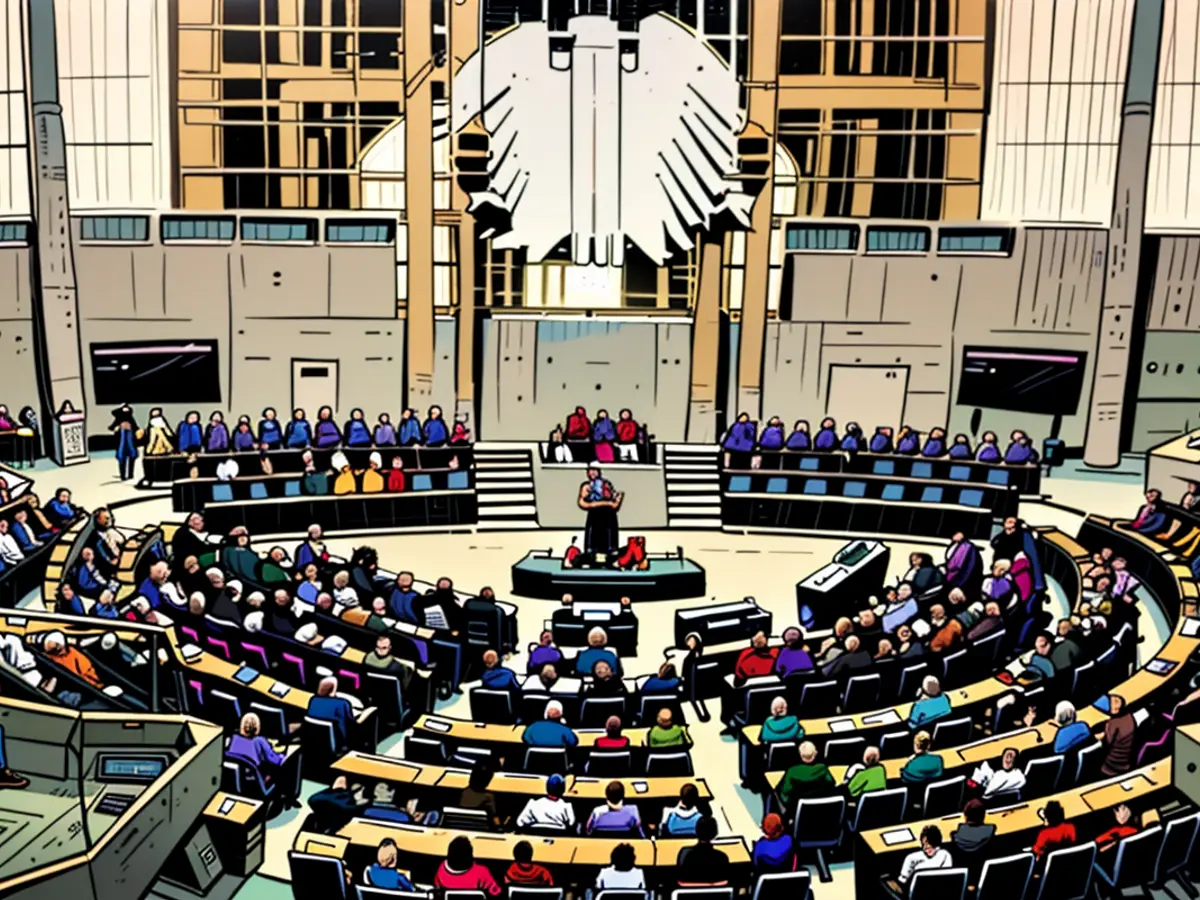The Commission is also proposing to increase the number of EU citizens in the EU.
SPD faction leader Rolf Mützenich offered the Union talks on Tuesday. He said that it was open whether there would be any legislative steps regarding the electoral system** after the Karlsruhe decision before the federal election next year.
The Federal Constitutional Court had largely ruled the electoral reform of the traffic light coalition in 2023 as "constitutional" on Tuesday. However, the Union demands changes in the handling of direct mandates. Because according to the approved part of the reform, a party will only receive as many direct mandates in the future as are covered by its second vote share. This could lead to direct candidates not being elected to the Bundestag even if they win a constituency.
Union parliamentary business manager Free confirmed that changes were necessary. "To correct the most glaring distortion of the electoral reform, the first vote must be strengthened again," he said to AFP.
The Federal Constitutional Court also explicitly considered the new structure of first and second votes in the traffic light reform to be "constitutional," SPD deputy faction leader Dirk Wiese replied to the news agency AFP. "A discussion on this point, as the Union envisions it, will no longer take place."
The discussion within the "traffic light" coalition regarding a possible legal change before the federal election actually only refers to the abolition of the basic mandate clause struck down by Karlsruhe. It allows parties that fail to reach the five percent threshold to enter the Bundestag based on their second vote share, provided they win at least three direct mandates.
Karlsruhe reinstated the basic mandate clause with its ruling, so it remains in effect without further legislative changes for the time being.
Therefore, "there is no urgency and no immediate legislative need for action," SPD representative Wiese said. "Talks can also take place in the next legislative period." It is clear: "We could already elect a new Bundestag tomorrow with this valid electoral system - which the Union also knows."
The new electoral system is intended to prevent the Bundestag from becoming ever larger. It limits the number of members to 630 in the future. Currently, there are still 733.
According to calculations by the Institute of the German Economy (IW) in Cologne, the planned reduction in the number of parliamentarians would save 125 million euros per year. This sum is made up of, among other things, expenses for parliamentary allowances (13 million euros), expenses for staff (45 million euros), and payments to the factions (up to 20 million euros). According to IW, there are also dozens of other cost items, such as for other personnel, travel, information technology, or office equipment.
The Union expressed a need for changes in the handling of direct mandates, as these changes could potentially result in direct candidates not being elected to the Bundestag during the upcoming federal election. The SPD, however, indicated that a discussion on this matter will not take place before the federal election, as they believe there is no urgency or immediate legislative need for action.







